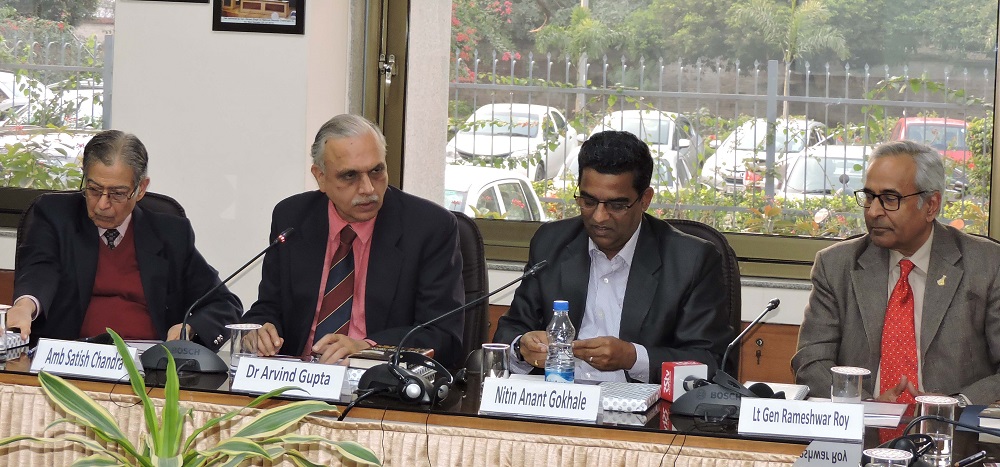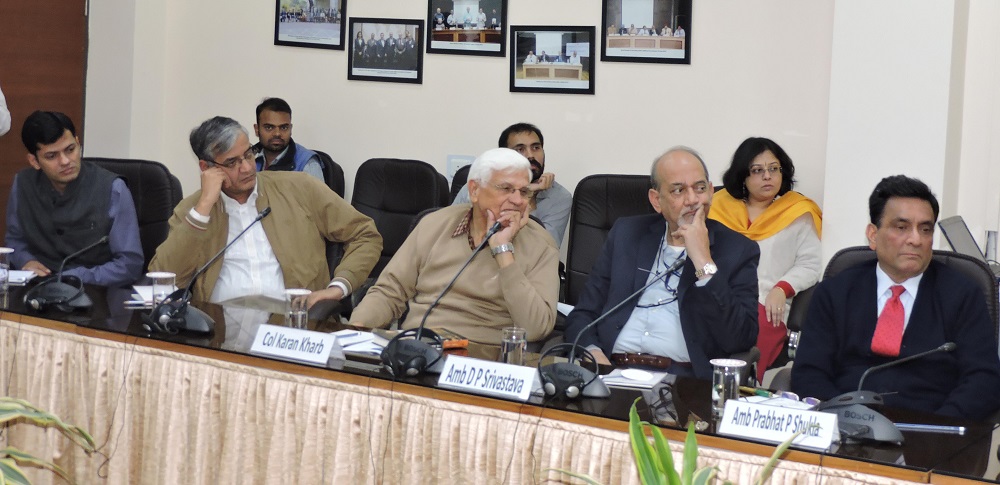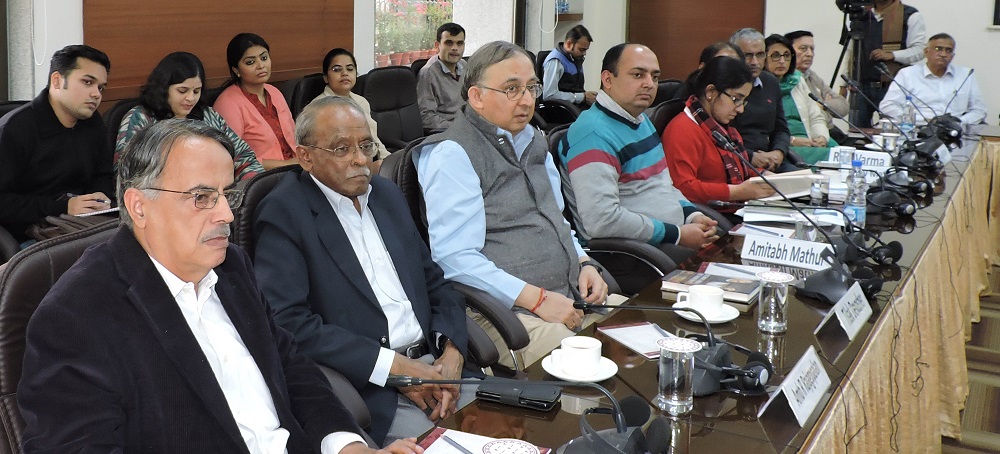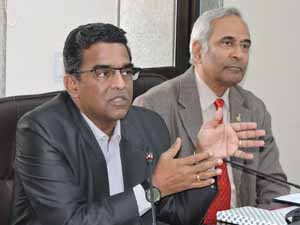The Vivekananda International Foundation (VIF) organised a round table discussion on 24 Nov 2017, to discuss the book, ‘Securing India, the Modi Way’, authored by Nitin Gokhale, senior journalist and a member of the VIF’s faculty. The book bares out essential underpinnings of Prime Minister Modi’s approach to India’s national security and foreign policy issues, and is based on author’s personal interactions with key stakeholders, and file notings which remain unclassified as of today. The VIF put together a wide array of policy analysts and former practitioners of diplomacy and security for discussions with the author, including Director, VIF, Dr. Arvind Gupta, Amb Satish Chandra – both former Deputy National Security Advisors (NSA), Vice Adm K. K. Nyaar (Retd), Chairman, VIF, and Lt Gen Rameshwar Roy (Retd), former Commander of Nagrota-based 16 Corps, among other experts.

The discussion kicked off with Dr. Arvind Gupta complimenting the author for carrying out the first-ever comprehensive review of Prime Minister Modi’s much talked-about policies which are increasingly pushing the frontiers of India’s diplomacy and taking the adversaries by surprise. While the Director touched on a broad range of issues affecting India’s national security, he underscored, in a matter of great significance, the need for policy makers to carry out a fresh review of India’s management of national security. He stressed on the need for tweaking policies and institutions entrusted with managing India’s security, keeping in view especially the new imperatives which have seeped into India’s security paradigm since the last comprehensive review was carried out almost a decade and half ago in 2001 by the previous NDA government post the Kargil War (1999).

Concurring with views expressed by Dr. Arvind Gupta, Amb Satish Chandra said, there is lack of proper evaluation of national security threats in India. He identified cyber and outer space among other potential threats to India’s national security. Amb Satish Chandra further commented that while Nitin Gokhale has dealt with cyber and outer space in his book, these two issues need more in-depth examination at policy levels. The former Dy NSA, however, pointed out the Indian case for a Chief of Defence Staff (CDS) and India’s nuclear doctrine as two noteworthy omissions in Nitin Gokhale’s book. Nevertheless, Amb Satish Chandra described the book as must-read for both common citizens and those who are dealing with India’s security issues. Lt General Rameshwar Roy, another co-panelist, while giving his thumbs-up for Modi’s hard-nosed policies on terrorism, opined that India will be supported throughout the world because terrorism is affecting everybody.

Nitin Gokhale’s book, ‘Securing India, the Modi way’, besides presenting a key insight into how crucial decisions are taken in the present NDA-led government, also brings into focus key events that have helped in shaping Prime Minister Modi’s polices on the external front. The author, in his deposition before the audience, described Modi’s policies as ‘firm on ground and reasonable in diplomacy’, best exemplified in the way Prime Minister Modi, assisted by NSA Ajit Doval and his core team of experts, helped successfully resolve a 73-day military stand-off with China on the Dokalm plateau in Western Bhutan in August this year.

Nitin Gokhale dwelt on several attributes of Prime Minister Modi that resonate with his policies. He added that Prime Minister Modi doesn’t get rattled by ups and downs or setbacks. He gives broad guidelines but leaves the nitty-gritty to professionals. Leveraging the Indian Diaspora has been a great attribute of Prime Minister Modi’s foreign policies, the author commented. Most importantly, he said the Prime Minister wants India to be a responsible, ethical world power, as also a value-based security provider in the best democratic traditions. Giving a glimpse into what the book entails, the author said decisions taken at the table and actions on the ground, especially those relating to India’s response to northeast insurgents along the India-Myanmar border, the ‘surgical strikes’ carried out by the Special Forces of the Indian Army across the border in Pakistan Occupied Kashmir (POK) in response to terror attacks on military bases at Pathankot and Uri, are among major highlights of the book.
Following the author’s presentation and accompanying expert’s remarks, the session was thrown open to a lively Q&A session.





